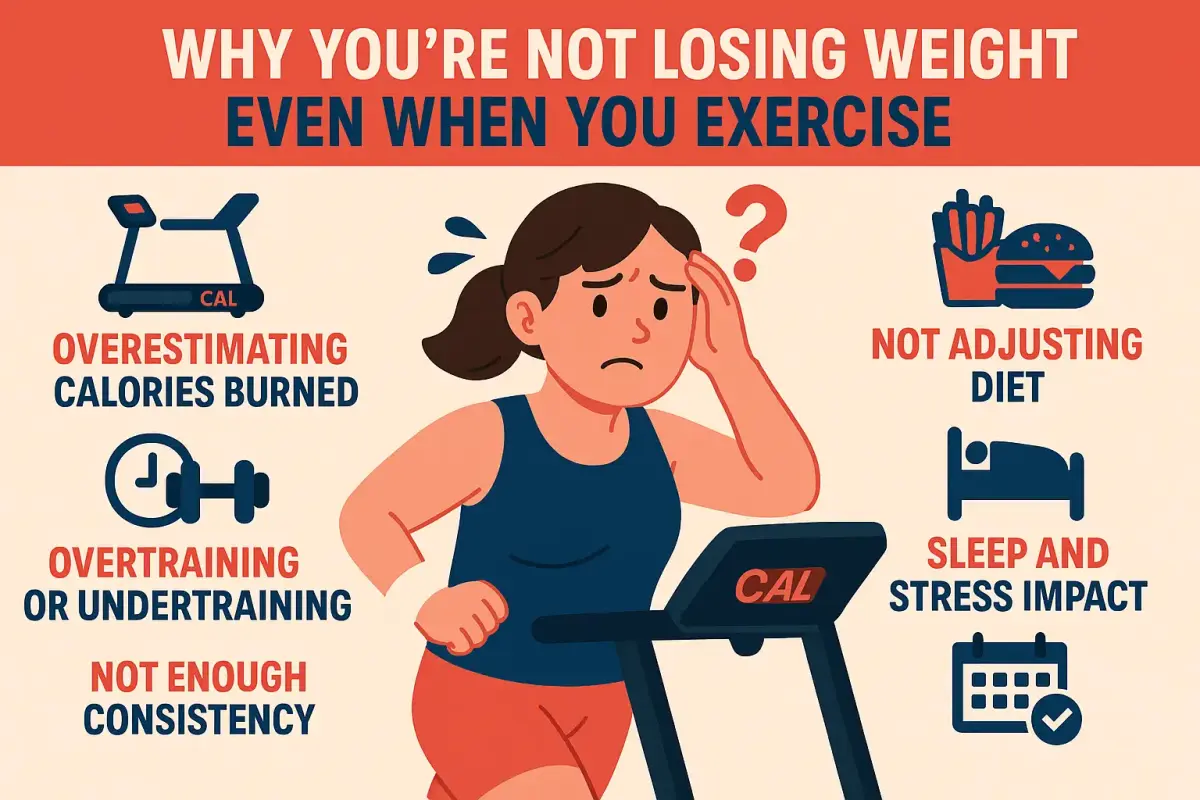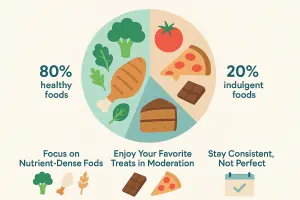Beginning a journey to lose weight is already a positive step toward becoming healthier, but what do you do when the scale isn't moving even though you're working out every day? Don't fret if you find yourself in this irritating situation. Once you understand how complex weight loss is, you can make smart decisions and achieve your goals. Here are some of the most common mistakes and how you can avoid them with strategies based on science.
You Will Eat Less, and What You Eat and How Many Calories You Eat Matter
Exercise is crucial — but it's not a magic wand. So, if you want to lose weight, you need to create a caloric deficit, which means that you eat fewer calories than you burn. It's easy to lose track of how many calories even small bites can add up to. A few nuts or a sweet beverage can add up quickly. Knowing what you're eating and exactly how much you're eating really makes a difference in successful weight loss by maintaining a healthy calorie deficit.
Believing You Burn More Calories While Working Out
Many folks believe that simply exercising will aid them in losing weight. Many people misestimate how many calories they burn while working out, so they overeat to compensate. Research supports this idea, showing that people typically consume more to compensate for exercising, essentially negating the calories burned. You can keep your balance through fitness monitors or apps that help you monitor the number of calories you eat and the calories you expend.
Increasing Strength and Water Retention
If you're building muscle or retaining water, the scale might not reflect your progress. Muscles weigh more than fat, so even if the scale doesn't budge, if you develop muscle, your clothes could fit better, and you may look more fit. Similarly, hoarding glycogen after tough workouts might make you temporarily heavier by retaining water. Look at those inches lost and body composition wins as a way to celebrate off-scale victories.
The Role of Rest, Stress, and Hormones
Balancing hormones in your body is key to maintaining a healthy weight. Inadequate sleep and high, chronic levels of stress can elevate cortisol levels, which in turn can make you feel hungry and reach for unhealthy foods. Sleep and stress management help keep in check hormones that affect hunger and metabolism.
Not Exercising Consistently or Not Exercising Enough
It's so important to keep at it consistently when exercising. Workouts that are moderate or low in intensity will not necessarily help you lose fat. You know you're working hard enough when you're incorporating all three types of exercise: cardio, strength, and high-intensity interval training (HIIT). Ensure that your schedule is somewhat varied so that you will stay interested.
Measuring Progress Beyond the Scale
The scale is just one part of a larger picture. Celebrate how much stronger and fitter your clothes are and how better they fit. Instead, use something like body measurements or pictures of your progress to get a more accurate sense of how well you're doing. The advantage of taking this approach is that it provides you with a holistic view of what you are hoping to achieve and keeps you motivated.
How to Keep Good Habits for Good
- Be Realistic: Strive for slow development, not quick fixes.
- Plan Food to Eat: Cook and prep healthy meals so you aren't eating at the drop of a hat.
- Stay Hydrated: Sip frequently on water to boost your metabolism and keep your appetite under control.
- Get Help: Find groups to be a part of or someone who you can connect with to hold you accountable.
- Read More: Educate yourself in nutrition and fitness at reputable sources.
Ending
Keep in mind, weight loss is multifaceted and there are many facets beyond exercise. These components—from diet to hormones—you can address with customized strategies tailored to your individual issues to make lasting change. Your path is one of a kind. Stay the course and keep at it, knowing that each baby step brings you closer to your goal.
My Body, My Experiment: Experts in science agree that understanding how your body responds can empower you to make better decisions that bring about long-lasting health changes. Do not give up; the harvest is coming!


